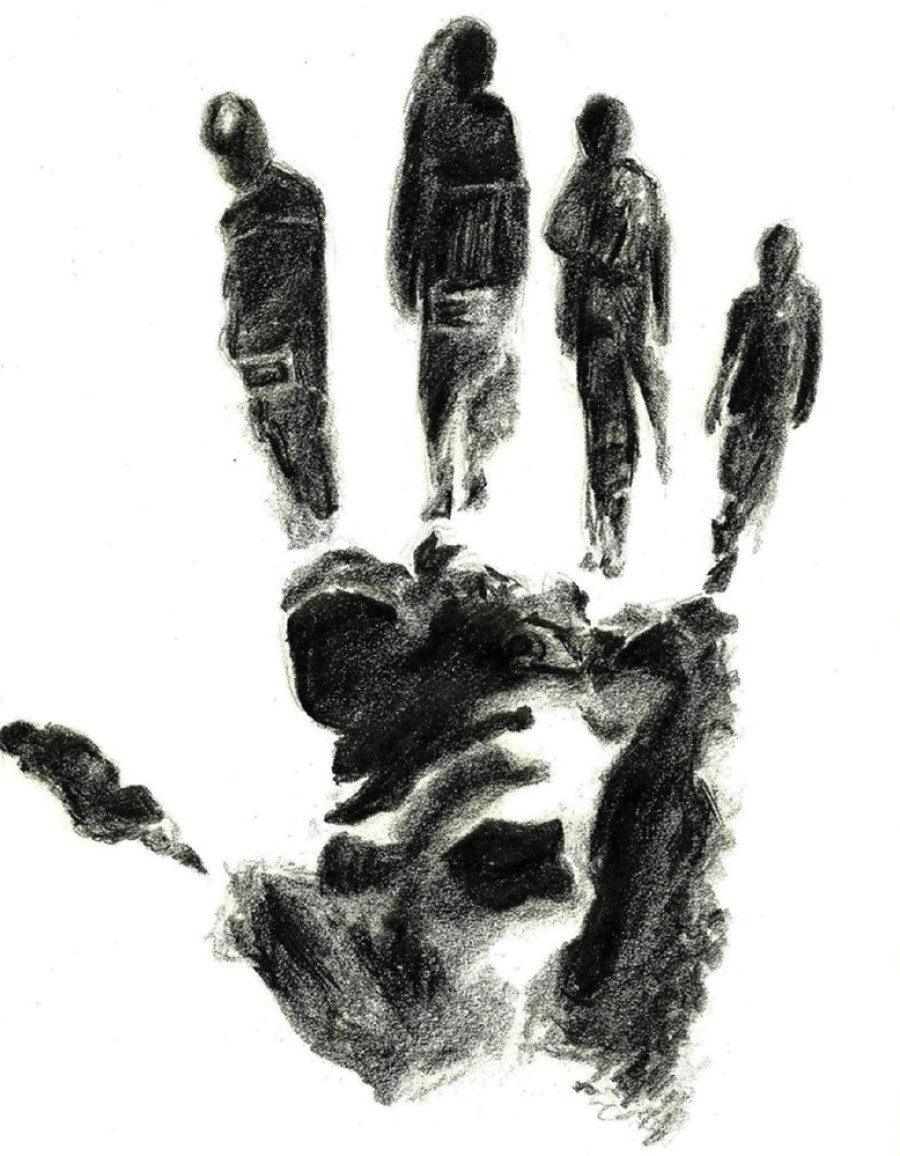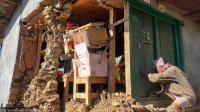Opinion
Sorry about that
Madhesi social activists have started a campaign apologising for past discrimination
Randhir Chaudary
After the Madhes Movement moved up from the plains to Kathmandu in the hills, a new we-are-sorry campaign has started in the Madhes resulting in intense discussions. This is probably the first time that such a campaign has been launched in the Madhes which has set off a discourse on social justice and equity. For some, this campaign is pious work. For others, it is an opportunity to atone for their or their ancestors’ prejudices and discriminatory treatment against Dalit communities. But there are some people in the Madhes who are blasting the campaigners saying that they are trying to gain popularity or are acting at the behest of Pahadi groups who want to take advantage of caste discrimination in Madhes.
The we-are-sorry campaign started a month ago on social media. Prashant Jha, Dipendra Jha, Tulanarayan Sah, Rakesh Mishra and some other social activists started the campaign on Facebook. We saw their photos with their hands folded saying sorry to Dalit communities for their known or unknown complicity in the discriminatory treatment meted out to them by the so-called upper castes.
The critics
With intense curiosity, I consulted the creators of this campaign to find out about its purpose. I came to know that the situation of the Dalit communities in the Madhes has been worse than that of other communities for a long time. They are poorer than other communities. They have a sort of anger against the so-called privileged classes. Dalit communities feel that the Madhesi upper castes are to be equally blamed for their sorry state. Among the core reasons why the Madhes is downtrodden, untouchability, of course, comes at the forefront. It is praiseworthy that the sorry campaign has been launched by the so-called upper castes of the Madhes. The number of people sympathising with Dalit communities has been increasing by the day. But there are some people who think that the campaign can lead to social disharmony in the Madhes.
People who criticise the campaign have been affected by two psychological dynamics. First, they have a personal vendetta with the front liners. They have cultivated differences without any grounds, but they are the smallest in number. Second, there is a group which thinks that there is marginalisation of the Madhesis only because of the state’s discriminatory policies. Meanwhile, some among the non-Madhesi intelligentsia have also not taken this campaign positively. As always with any movement, they suspect that this campaign is being funded by external elements. The campaigners need to silence these detractors with continuous work and efforts. Critics say that the campaign will not bring any change in the economic and social status of the affected communities. They argue that the campaign may give mileage to the personality of the campaigners.
More than laws
Then there are those who say that there is no discrimination against Dalits in the Madhes. They say that one should concentrate on how one’s educational status can be strengthened. We can see that well known and economically better off urban Dalits like Dom and Chamar are not discriminated against, but those who are poor and not popular in their society are still being discriminated against. In rural areas, the level of discrimination is still high. The sorry campaign is just a beginning. It has given a symbolic message
to society that there should be no discrimination on grounds of caste. Such a campaign is necessary because laws alone cannot eliminate caste discrimination in society.
Some people say that the core reason why Dalits are poor is landlessness. And the big exploiters are the so-called upper castes of Madhes. That’s why the upper castes should redistribute land to Dalits. They also argue that Dalits should get preference in reservation policies. This requires serious debate. What one needs to think is that this campaign may not solve all the problems, but it can help eliminate caste discrimination in society. Regarding the allegation against the so-called landlords of Madhes, what we need to see is how many there are. Let’s make a list of ‘jamindars’ in Madhes. Three out of four are from the hill community. Why are we not arguing that land distribution is the job of the government?
United we stand
It is no secret that during the 1960s, the government launched resettlement in the Tarai on public land created by clearing the Chure jungle. As a result, the population of hill people has jumped from 6 percent in the beginning of the 1990s to 37 percent presently. This development was made possible by rural settlement development and resettlement programmes. How much land was offered to landless Dalits of Madhes during these programmes? Why didn’t Madhesi Dalits get land? Because of Madhesi landlords? Or the leaders who distributed the land? Or the administration?
The Madhesis, Dalits, women, indigenous nationalities and deprived regions have been lumped together for the purpose of reservation quotas. The Madhesi Dalits are hardly found to be taking advantage of the Dalit quota. Almost all the allocated quota for women are being grabbed by Khas-Arya women. For this reason, the state needs to create special quotas for the Madhesi Dalits and Madhesi women to make space for Dalits in the reservation system. In a nutshell, the we-are-sorry campaign benefits all of Nepal and not just the Madhes. Some Hindu fundamentalists or so-called Brahmins of Madhes are terrified that the empowerment of Dalits will lead to their downfall. This is utter trash. The caste with a large population in the Madhes is afraid that its grip on power will be loosened if Dalits are empowered. To be frank, the day when all the ethnicities residing in the Madhes become united and empowered, it will be easier to pursue the fight with Kathmandu.
Chaudhary is associated with the Tarai Human Rights Defenders Alliance




 8.12°C Kathmandu
8.12°C Kathmandu










